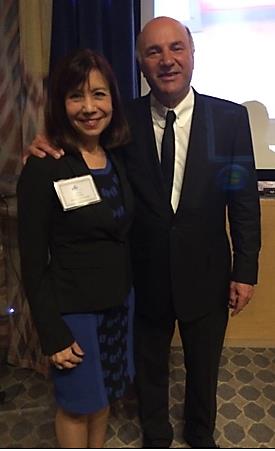What do gestures tell us about a public speaker? We learned a lot about Joel Osteen's gestures during his interview about his response to the hurricane. Hurricane Harvey wreaked havoc on the city of Houston which is the 4th largest city in the country. There was extensive flooding requiring people to be evacuated by rescue workers and helicopters. Thousands of people were in search of shelter and could not return to their homes.
The question people wanted to know was Why didn't Pastor Joel Osteen open Lakewood Church to the people of Houston? The Compaq Center has the capacity to hold 16,285 people. After much criticism on social media, the center accepted hurricane victims on Tuesday.
When Joel was interviewed by CBS TV he explained that he didn't open his center as a shelter because he was not asked by the city. He further explained that the best places for shelter were where there were already resources, supplies, and personnel on the ground. It didn't sound convincing on the surface. But he still could have salvaged his reputation by admitting the mistake and being remorseful. Instead, he pivoted to his message points and gave what seemed to be a presentation. His hands were the giveaway. He used the same wide-sweeping gestures that are part of his signature style when he is on the main stage in front of thousands of people. The CBS interview was directed to three journalists (although it was broadcast to millions of viewers). In media interviews and conversations, people gesture more naturally with their hands closer to their body.
While using wider gestures may be part of the pastor's style, it gave the impression of formality rather than intimacy and sincerity. That is not to say he was dishonest. I'll leave that to the top body language experts. The point is this. To appear sincere, your body language needs to be relaxed and appropriate to the situation. Wide gestures work well in a stadium but seem exaggerated when communicating on a television show or satellite interview. For crisis communication to be effective, it's imperative to plan your delivery as well as your message points.
For more tips visit https://www.facebook.com/direstacommunications



 Last month I had the good fortune to hear Kevin O’Leary of Shark Tank speak at a networking event. Unlike typical celebrity events, this venue was intimate, allowing contact with Mr O’Leary and even a photo opp.
After drinks and hors d’oeuvres, we gathered into a small theater-like room to hear him speak. His speaking approach surprised me and I found it refreshing. Instead of the usual PowerPoint, or main stage podium presentation, Mr O’Leary entered the room in an unassuming manner yet strongly communicated
Last month I had the good fortune to hear Kevin O’Leary of Shark Tank speak at a networking event. Unlike typical celebrity events, this venue was intimate, allowing contact with Mr O’Leary and even a photo opp.
After drinks and hors d’oeuvres, we gathered into a small theater-like room to hear him speak. His speaking approach surprised me and I found it refreshing. Instead of the usual PowerPoint, or main stage podium presentation, Mr O’Leary entered the room in an unassuming manner yet strongly communicated 
 Political candidates spend millions of dollars on advisers,
Political candidates spend millions of dollars on advisers, 

 Back in September, I wrote about
Back in September, I wrote about  Last night I was a guest speaker for ABWA. My presentation was Speak Powerfully Sell More: Speak Your Way to More Business.
One woman in the audience asked a question about how to handle a celebrity who is hired to speak and doesn't deliver. This woman went on a rant about how many of these celebrities are not good speakers and yet meeting planners continue to hire them. I explained that the reason for that was event planners want to sell tickets. An event will sell out when the keynote speaker is a celebrity.
Last night I was a guest speaker for ABWA. My presentation was Speak Powerfully Sell More: Speak Your Way to More Business.
One woman in the audience asked a question about how to handle a celebrity who is hired to speak and doesn't deliver. This woman went on a rant about how many of these celebrities are not good speakers and yet meeting planners continue to hire them. I explained that the reason for that was event planners want to sell tickets. An event will sell out when the keynote speaker is a celebrity. Bill Clinton is a rock star on the speaking platform and the ultimate spin meister. I tell my audiences that gifted speakers are born. Most public speakers will never reach the level of a Martin Luther King. Not even most professional speakers achieve that height. Some speakers have a special gift-an ability to move the masses, entertain the crowd, speak off the cuff, and sway an audience.
And last night at the Democratic Convention, Clinton demonstrated all of it and then some. As I anticipated his speech, I wondered how he was going to excite the crowds when the facts pointed to high unemployment, lower wages, and a general discontent with the economy. Well, it didn't take him long to put a position spin on the situation. How did he do it?
Bill Clinton is a rock star on the speaking platform and the ultimate spin meister. I tell my audiences that gifted speakers are born. Most public speakers will never reach the level of a Martin Luther King. Not even most professional speakers achieve that height. Some speakers have a special gift-an ability to move the masses, entertain the crowd, speak off the cuff, and sway an audience.
And last night at the Democratic Convention, Clinton demonstrated all of it and then some. As I anticipated his speech, I wondered how he was going to excite the crowds when the facts pointed to high unemployment, lower wages, and a general discontent with the economy. Well, it didn't take him long to put a position spin on the situation. How did he do it?